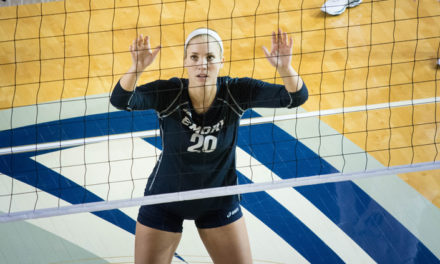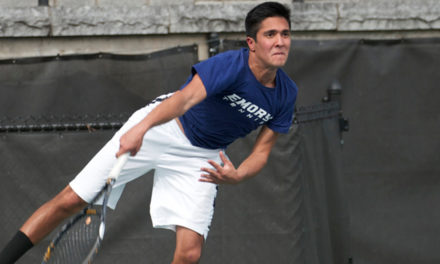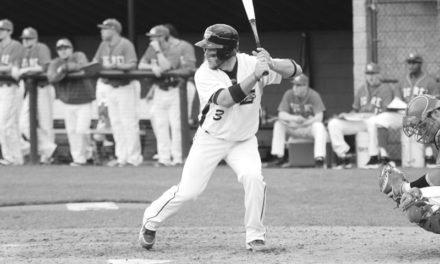Advancing teams in caps.
Group A: BRAZIL, Cameroon, Mexico, CROATIA
Host Brazil won the Confederations Cup last summer and is in fine form as the tournament approaches. Coached by Luiz Felipe Scolari, who managed Brazil when they last won the World Cup in 2002, the expectation for the hosts is a Championship, and anything short of a victory in the Final will be a massive disappointment to the fanatical fans of Brazil.
Croatia is a team shrouded in controversy as a result of defender Josip Simunić, who was suspended for ten games after he “displayed discriminatory behavior in interaction with the Croatian supporters” after a match on Nov. 19, according to FIFA. The Croatian team is lead by players such as Luka Modrić, Mario Mandžukić and Ivan Rakitić.
Group B: SPAIN, CHILE, Australia, Netherlands
With respect to what the Australian team has accomplished to qualify, this group is all about the other three teams, all of which must believe themselves to be deserving of a place in the knockout round. Spain, winners of the last World Cup and the last two European Cups, showed their first sign of vulnerability last summer in the Confederations Cup, losing 3-0 to Brazil in the Final.
The Netherlands were undefeated in qualifying, winning nine of their 10 games with one draw. Chile also have many reasons to be confident, two being their comprehensive 2-0 victory in a friendly against England in November, as well as the continued goal-scoring of forward Alexis Sánchez for F.C. Barcelona.
Spain should win this group, and Chile, lead by Sánchez and the defensive guile of converted midfielder Gary Medel, may end up surprising the Dutch.
Group C: COLOMBIA, IVORY COAST, Japan, Greece
Group C is filled with four capable teams which all have a chance to make it to the next round. Colombia are currently forth in the FIFA rankings, mostly as a result of their second place finish in South American qualifying, behind only Argentina. Colombia are a well balanced team with goals coming from AS Monaco’s Radamel Falcao and James RodrÃguez, and should advance.
Greece, Japan, and the Ivory Coast all have their strengths, but the legendary 35 year-old Captain of the Ivory Coast, Didier Drogba, in what will likely be his final World Cup, will provide the difference for “The Elephants,” and lead them to the knockout stages.
Group D: URUGUAY, Costa Rica, England, ITALY
Group D ended up being the fateful group with two teams from Pot 4, as traditional European powers England and Italy will compete with a Uruguayan team lead by prolific strikers Edinson Cavani and Luis Suarez. Italy is an incredibly talented team led by midfielder Andrea Pirlo and goalkeeper Gianluigi Buffon. England face an uphill battle as its country’s sky-high expectations are not realistic given the current talent level of the squad. Costa Rica finished second in the CONCACAF qualifying behind only the United States, yet will likely be outclassed by the other teams in this highly competitive group.
Group E: Switzerland, ECUADOR, Honduras, FRANCE
France, coming off of a highly disappointing qualifying campaign, is lucky to be in a group that should see them advance to the knockout stages. The team is led by winger Franck Ribéry, who recently finished third in the voting for the FIFA Ballon d’Or, the award given to the most outstanding player of a calendar year. France, in spite of their tendency to be inconsistent, should progress because of the quality of their players.
Switzerland won their qualifying group, but faced relatively weak opposition. Honduras could challenge for advancement, boasting a strong midfield spearheaded by Wilson Palacios and Roger Espinoza, who play in England for Stoke City and Wigan, respectively, but are likely too thin in other areas to see that challenge through.
The other qualifier from Group E will likely be Ecuador, who will be inspired to play for a fallen teammate, Christian Benitez, who passed away in July.
Group F: ARGENTINA, Nigeria, Iran, BOSNIA AND HERZEGOVINA
Argentina, who field a star-studded lineup highlighted by the world’s best player (in this writer’s opinion), Lionel Messi, have been playing fantastically, finishing first in qualifying in South America, and should win this Group relatively easily. The real question, however, is which team will accompany them to the next round.
Iran, led by Carlos Queiroz, former manager of the Portuguese National Team, do not have the star power to emerge from a competitive group. Nigeria, winners of the 2013 Africa Cup of Nations, are lead by Chelsea midfielder John Obi Mikel, and have a chance to sneak into the second spot in this group, as this is a team with experience performing in major tournaments.
The World Cup in Brazil is the first major tournament that Bosnia and Herzegovina has ever qualified for. This team dominated qualifying, winning eight of their ten games. Led by Edin Džeko and Miralem Pjanić, Bosnia and Herzegovina have the look of a team ready to seize their opportunity.
Group G: GERMANY, Ghana, United States, PORTUGAL
The United States are playing some of the best soccer in their history, but Jürgen Klinsmann’s side has been drawn in a potential “Group of Death,” as Ghana, the least intimidating of the three opponents, has knocked the US out of the last two World Cups.
Germany are one of the world’s best teams, proved by the inclusion of goalkeeper Manuel Neuer and defender Phillipp Lahm in the recently announced FIFA World XI for 2013. Portugal are led by star man Cristiano Ronaldo, who just won the FIFA Ballon d’Or, given to the best player of 2013, scoring 69 goals in just 59 games. Both Germany and Portugal will be seen to the knockout stages by their World Class stars.
Group H: BELGIUM, Algeria, South Korea, RUSSIA
A relatively straightforward group should see European powers Belgium and Russia move on to the tournament stages. Belgium have a highly talented and young team that lacks experience in major competitions, but will have high hopes in Brazil because of players like Eden Hazard, a winger who has been in blistering form for Chelsea Football Club in the Barclays Premier League.
Russia are coached by former England manager Fabio Capello, and will attempt to ride a solid defense far into the tournament. Behind Bayer Leverkusen striker Son Heung-Min, South Korea look to be the team likely to keep the European duo from advancing.
– By Oliver Rockman
The Emory Wheel was founded in 1919 and is currently the only independent, student-run newspaper of Emory University. The Wheel publishes weekly on Wednesdays during the academic year, except during University holidays and scheduled publication intermissions.
The Wheel is financially and editorially independent from the University. All of its content is generated by the Wheel’s more than 100 student staff members and contributing writers, and its printing costs are covered by profits from self-generated advertising sales.





